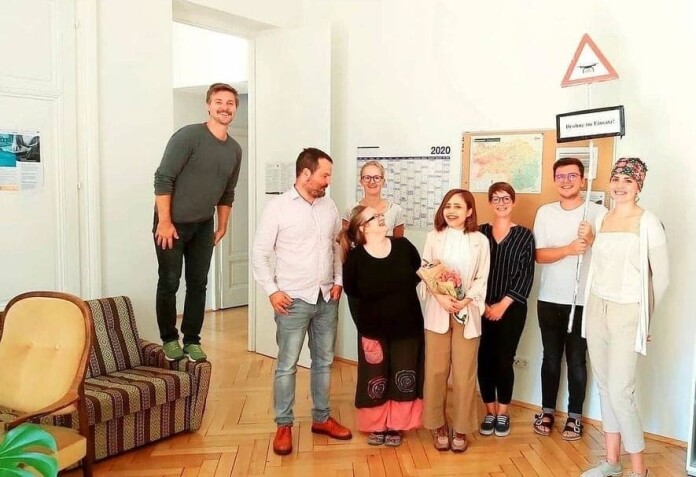“When my postdoctoral journey in Europe demands dedication and enthusiasm, sacrifice and hard work, there is a glimmer of blessing waiting to manifest the meaning of a glorious process,” writes Dr. rer. nat Sherly da Costa, a German doctorate in Geography from Kupang, East Nusa Tenggara (NTT). In this enlightening piece, she shares her triumphs and struggle during her postdoc journey in Austria and Portugal, from facing setbacks due to the pandemic to winning awards and making family home away from home.
***
Getting a German doctorate (Dr. rer. nat: Doctor rerum naturalium) in Geography from Friedrich Schiller Universität Jena, Germany, two years ago was the greatest and most profound pride for me. I was able to do it fairly quickly at such a young age (29 years old). I was the youngest, the only Asian, and the highest achiever PhD holder in the Human Geography Department at that time.
My journey of becoming a postdoctoral researcher (International Guest Researcher/Staff) at the Institute for Geography and Regional Science, Karl-Franzens-Universität (KFU) Graz, Austria, pre-covid-19 was smooth with little hiccups. I joined the program through the ASEA-UNINET Ernst Mach Grant of the OeAD, Austria’s Agency for Education and Internationalization, in 2019.

Prior to that, I sent dozens of postdoc applications and international delegations in more than 20 countries. Praise to the Lord, I managed to win four international awards. First, the Austrian Institute of Technology Funding for International Delegation for European Forum Alpbach (EFA) 2019 in Tirol, Austria, August 2019. Second, I was awarded funding for my postdoc at KFU Graz by the Austrian Ministry of Education, Science, and Research (BMBWF), from September 2019 to May 2020, which was later extended until August 2020 due to the pandemic.
Next, I was awarded funding for the Joint DAAD Alumni Seminar in “Resilient-Flood Risk Management” at TH Köln and TU Kaiserslautern, Germany, in October 2019. There were 20 participants from all over the world, five of which from Indonesia and all of whom were past awardees of DAAD (German Academic Exchange Service)’s scholarships. I had a valuable opportunity to participate in visits and scientific activities throughout the state of North Rhine-Westphalia (NRW), including in Cologne, Dortmund, and Duisburg-Essen.
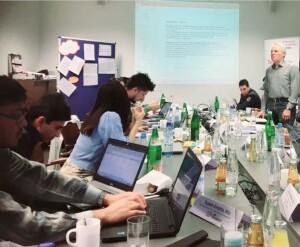
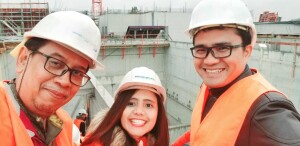
Lastly, I won the Fundação Oriente scholarship to conduct an independent postdoc research at the Department of Environment and Planning, University of Aveiro, Portugal, between September 2020 and August 2021, which I will elaborate later in this article.
Entering 2020, the pandemic presented some obstacles that, though bothersome, did not derail my postdoc journey off path. Early in the year I won an award from the Leibniz Institute for Spatial Social Research (IRS) to participate in the IRS Spring Academy 2020 in Ekrner, near Berlin. During this event, I was supposed to present my research titled “Human Geography Perspective: Flood Risk Management and Building Community Resilience in Eastern Indonesia”. Due to covid-19, however, my presentation had to be postponed until spring 2021.
There are some of my other research presentations that have also been delayed, including in Vienna, Austria, and a few other universities in Europe. Moreover, I had to postpone my departure to Aveiro, Portugal, from May to August or September 2020 to complete my postdoc research.
There is a silver lining, however. The pandemic led to the BMBWF giving me an exceptional award to extend my stay at KFU Graz for three months. Due to God’s grace, I successfully finished my postdoc research there before jetting off to Portugal.
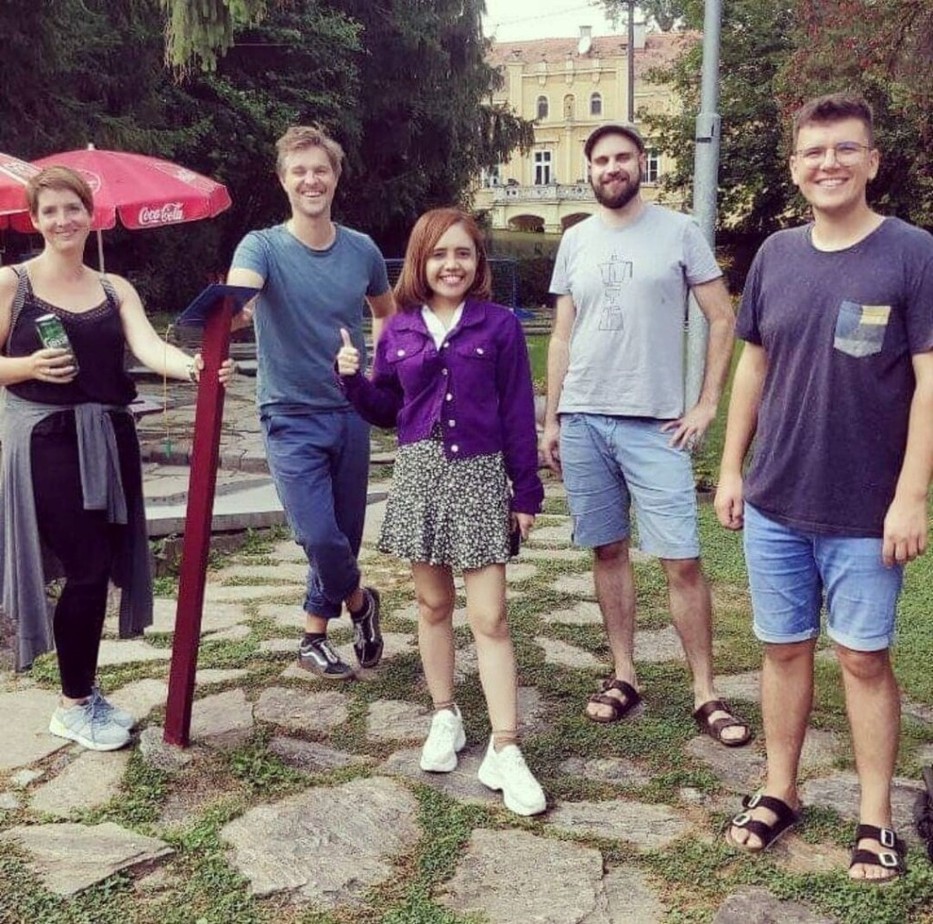
Sunrise in Aveiro, Portugal: Reunited in time and space with students from Timor Leste
I think of my journey in Europe like flying on a plane in the sky without forgetting to land at the destination, or in other words, to be down to earth. A balanced life requires harmony and natural spirit – a genuine soul, heart, mind, and action in understanding the meaning of not only focus and determination but also kinship.
That is how I have been experiencing Portugal, with students from Timor Leste (East Timor) who are currently pursuing their studies at the University of Aveiro through government scholarships. For me, this is a reunion designed by God – reunion from the perspective of kinship, ancestors, and customs reflected in an attitude of love and tolerance to support one another.
The Timor Island is divided into two regions, the so-called “Loro Monu” or sunset (referring to the western part of the island) and “Loro Sae” or sunrise (referring to the eastern part). Hailing from Baucau District, I belonged to Loro Sae. Due to the 1999 civil war in the island, however, I had to relocate to Southwest Maluku, then to Kupang in NTT. But here I am now with my brothers and sisters, from both Loro Monu and Loro Sae, studying, researching, and living together in the same university and hall.
I’d like to think that we represent the meaning of sunrise in Aveiro. It contains a deep philosophical value in life (culture, blood and origin of ancestor); the young generations who love one another in God. As beautiful as the rising sun, it will also set in the afternoon – the cycle of nature runs with space and time but filled with acts of human spirit and love that are eternal.
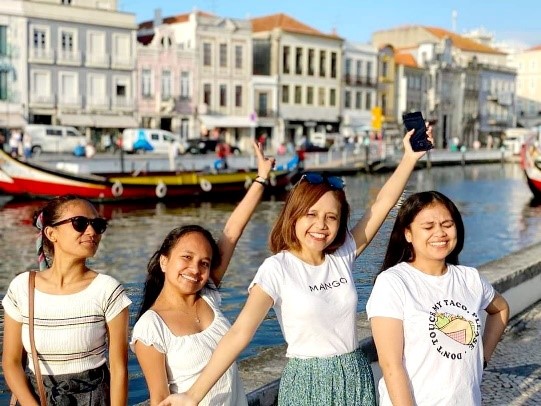
Onwards and upwards, while reflecting inwards
In between my busy schedule as a postdoc fellow, I have also been looking for junior professor jobs at universities throughout Europe. Dozens of applications, each consisted of thousand pages, were already rejected, but I am still hoping for good news from a few others. Again, the pandemic has delayed many essential scientific programs and recruitment processes.
While waiting for the next step in my academic career, I will keep moving forward in line with my long-term vision and mission. I try to give back by helping local people affected by natural disasters, i.e. rural-river flood in West Malaka Sub-district, NTT, through a local program I founded called Resilience for Sustainable Development Based Environment (RESUDENVI). I am also promoting artworks from neighboring artists in the Afalyca Community Arts Center in Baucau District, Timor Leste.
Reaching the highest achievements in life requires diligence and honesty in leading your personal and professional life. My dedication to interdisciplinary-geography science at public and private institutions in Indonesia has guided me in making decisions, commitments, and in working to fight for the freedom and security of people affected by disaster. It’s not an easy thing to do, but I am devoted to the process in my constant prayer and hard work.
Photos are provided by author.









